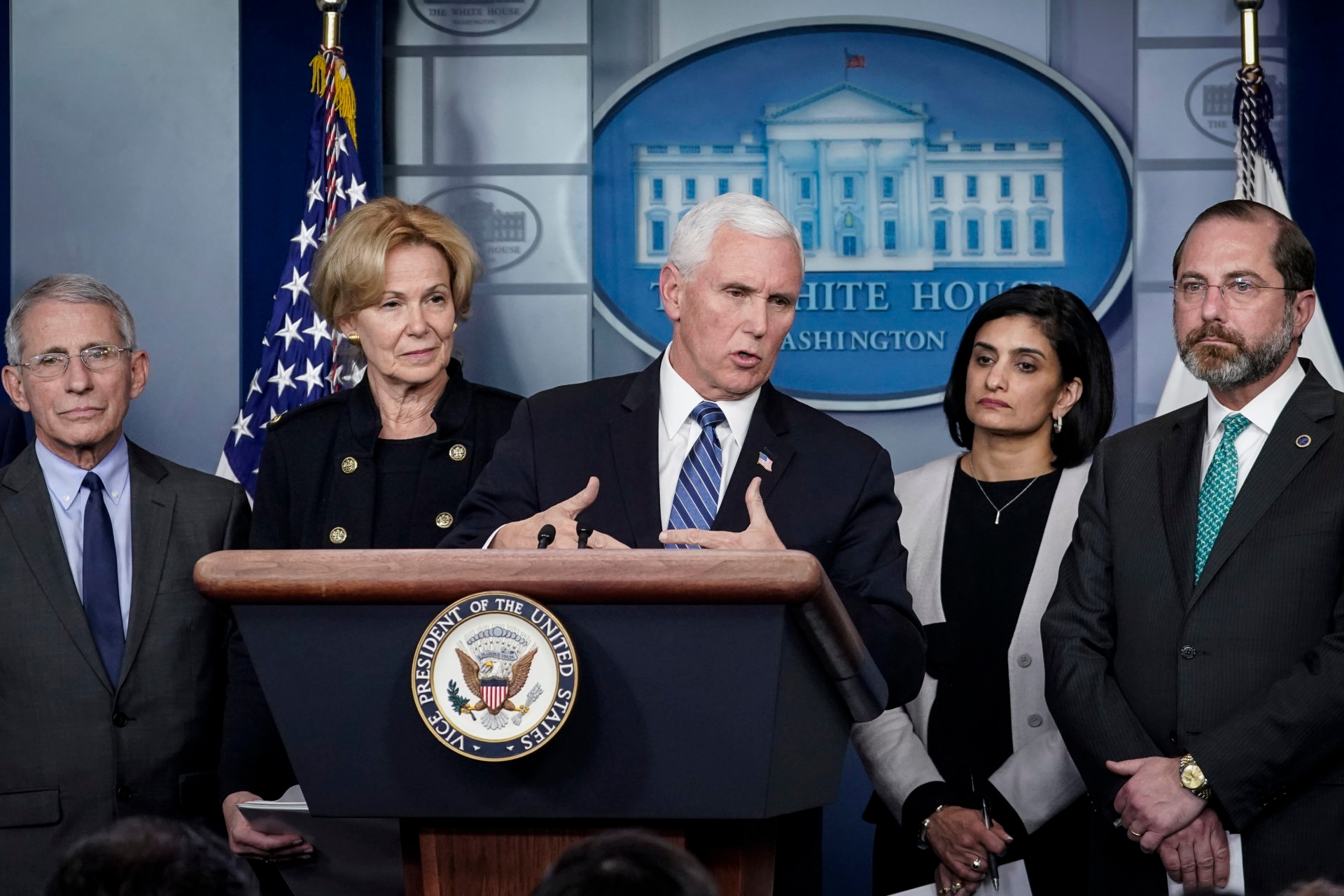Health Groups Push Congress on Telehealth Restrictions in Coronavirus Response

Lawmakers in Washington tasked with reaching a deal to provide emergency funding to accelerate the United States’ coronavirus response are soliciting feedback from major health industry groups, who are taking the opportunity to zero in on telehealth.
The Connected Health Initiative and the American Medical Association sent letters addressed to House and Senate leadership Tuesday afternoon, according to people familiar with the plans. Ahead of remarks from Vice President Mike Pence and ambassador Debbie Birx to both the Democratic and Republican Senate caucuses about the administration’s efforts to combat the outbreak, Minority Leader Chuck Schumer (D-N.Y.) said on the Senate floor he expects appropriators to announce a bipartisan agreement on an emergency funding package — between $7 billion and $8 billion — by the end of Tuesday.
According to a source familiar with the negotiations, House lawmakers reached an agreement Wednesday morning to include a provision allowing the Secretary of the Health and Human Services Department to waive certain Medicare telehealth restrictions during the coronavirus public health emergency. This would allow Medicare providers to provide telehealth services to Medicare beneficiaries regardless of whether the beneficiary is in a rural community and allow them to receive care from their physicians in their homes. The estimated cost of the provision is $500 million.
A person working closely on the letter from the Connected Health Initiative -- whose steering committee includes health insurer UnitedHealth Group Inc., technology giants Apple Inc. and Microsoft Corp., pharmaceutical companies such as Novo Nordisk A/S and Roche Holding AG and an array of academic medical centers -- said the industry sees an opportunity in the outbreak to raise the issue of how telemedicine could be a critical tool not just in the case of the coronavirus, but for future public health emergencies.
According to the letter, existing law “makes it very difficult” for providers to use digital medicine services such as voice and video technology that enables patients to reach clinicians, which could offer the safest method to combat an epidemic like the coronavirus. In addition, the Centers for Medicare and Medicaid Services currently requires a 20 percent co-pay on monthly remote patient monitoring services that the Connected Health Initiative says impedes the ability of providers to treat patients by monitoring their health data throughout the day.
There has been discussion among lawmakers about telemedicine surrounding the forthcoming funding package and including policy to encourage its use, according to a House Democratic aide.
Morgan Reed, executive director of the Connected Health Initiative, said the group has received "uniformly positive feedback" from key members of the House committees with jurisdiction over telehealth services.
"We got into the situation because we didn't solve this over the years that we have been asking Congress to solve this problem of preventing telemedicine from being reimbursed," Reed said. "Our response today is two-fold: One, solve the immediate problem to help with the coronavirus, and that is with real-time voice and video and remote patient monitoring. Two, how do we solve for the next crisis?"
The letter outlines several solutions Congress could incorporate in the emergency funding package, including a provision waiving reimbursement restrictions during emergencies, plus a general waiver of those restrictions; waiving the mandatory 20 percent co-pay for remote patient monitoring billing; and a permanent removal of restrictions to telehealth service reimbursements under Medicare, to protect Congress from “revisiting the barriers to telehealth and digital health each time we face a crisis.”
The coronavirus, which has taken hold in 12 states and forced local authorities from Texas to California to issue public health emergencies, is now spreading in the United States via community transmission. That’s prompted health officials from the Centers for Disease Control and Prevention and the World Health Organization to call on providers to expand existing telehealth services.
Telehealth advocates say an advanced, streamlined system of telemedicine would be beneficial in epidemics for several reasons — by preventing people from further crowding over-burdened facilities; reducing exposure to the elderly, the immuno-compromised and health workers; and helping treat patients from the safety and comfort of their own homes. But a fragmented web of reimbursement policies and medical licensing issues have stifled efforts to broaden access and affordability of telehealth services, and groups such as Connected Health Initiative see a window to push Congress to remove barriers in reaching patients.
Clarification: A previous version of the headline misstated that the health groups are seeking funding for telehealth services.
This story has been updated with House lawmakers' provision on waiving Medicare telehealth restrictions during the coronavirus emergency; comment from Morgan Reed, executive director of the Connected Health Initiative; and with AMA's letter.
Yusra Murad previously worked at Morning Consult as a reporter covering health.
Related content

As Yoon Visits White House, Public Opinion Headwinds Are Swirling at Home

The Salience of Abortion Rights, Which Helped Democrats Mightily in 2022, Has Started to Fade
